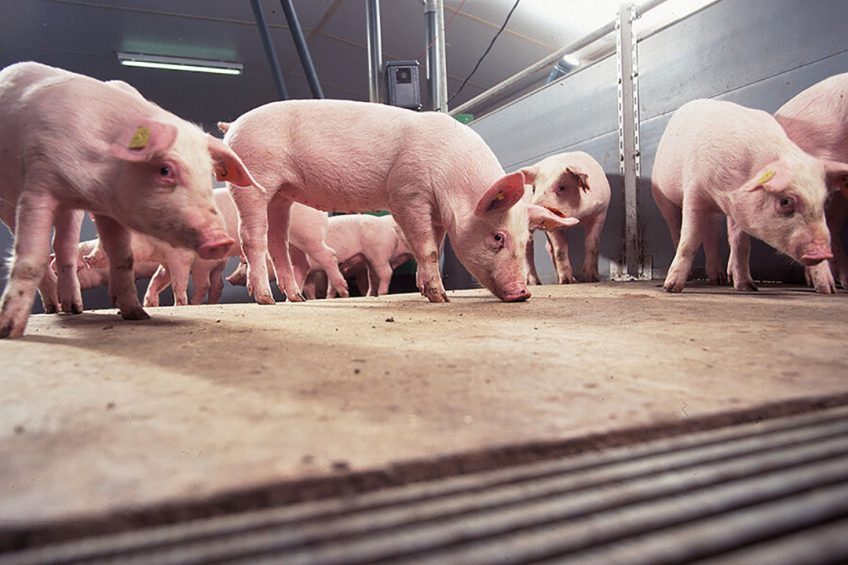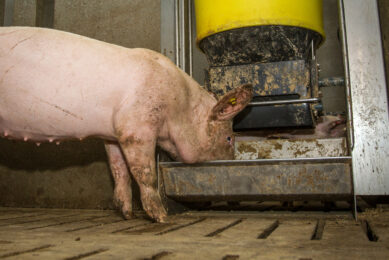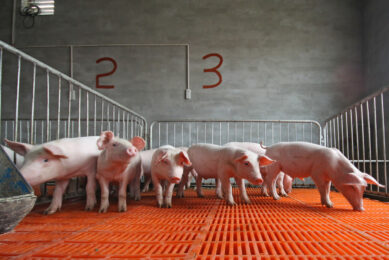Tackling ileitis by boosting immunity

The use of performance trace minerals to bolster the immune system can help swine producers reduce the losses associated with clinical and subclinical ileitis. Adopting resilient control solutions is becoming increasingly important as options for control become more restricted.
Ileitis remains a widespread and financially significant problem, reducing growth rate and unit throughput and increasing mortality. It is becoming more of an issue as the global swine industry moves to reduce the use of antibiotics.
Ileitis is a widespread challenge, and treatment has usually revolved around vaccination and the use of antibiotics – but the use of antimicrobials is being removed from the control armoury. Ileitis is commonly seen as an issue in growers and finishers but is now increasingly seen in the late nursery phase as antibiotic restrictions are imposed.
Subclinical ileitis: less recognised
Subclinical ileitis is less well understood and recognised, often being indistinguishable from other enteric challenges. Visible signs such as rough hair and gauntness are often not seen, but average daily gain will be affected, commonly reduced by between 10% and 37%.
The cost of the disease to the industry is significant. About 40% of businesses report a level of clinical problems in the herd, and all will also be suffering the effects of unseen subclinical disease. As many as 50% of units will have subclinical issues and be largely unaware of it.
They will simply see poorer performance and probably attribute this to other causes. The cost of subclinical disease is estimated to be around € 3–11 per pig marketed. This soon multiplies into significant sums when taken across a whole unit with several batches per year.
To this morbidity effect can be added the costs of increased mortality and the costs of management disruption including reduced throughput, particularly in “all-in-all-out” systems. The cost of ileitis in swine herds can therefore be considerable, making control and reduced incidence a prime objective to improve efficiency.
By suppressing the immune function, the bacteria can continue to reproduce resulting in a thickening of the ileum, a condition often referred to as “garden hose gut”
Development of ileitis
Ileitis develops as infection with Lawsonia intracellularis and has a significant impact on the small intestine. The infectious agent infiltrates the gut lining and suppresses the ability of the pig to mount a strong immune response and destroy specific pathogens by reducing the activity of the part of the immune system known as T-cells.
By suppressing the immune function, the bacteria can continue to reproduce resulting in a thickening of the ileum, a condition often referred to as “garden hose gut”. This thickening of the ileum leads to malabsorption of nutrients, diarrhoea, reductions in feed intake and consequently a lower daily gain. Morbidity is common in subclinical situations, while mortality can occur in severe cases. Suppression of the immune system also compromises the pigs generally, making them more susceptible to secondary infections.
Reducing the incidence of ileitis
One way to reduce the incidence of clinical and subclinical ileitis is to take steps to ensure the animal’s immune system is robust and able to respond to the initial challenge to help prevent the disease becoming established. Trace elements have a significant role in the functioning of the immune system. A stronger immune system means the animal is better able to defend itself against all challenges, not just ileitis, with zinc being particularly important.
Specifically, zinc enhances the adaptive response, in other words how an animal responds to disease challenges. Animals with an enhanced response can overcome challenges quicker and recover sooner, and they are better able to respond to new challenges in the future. So providing sufficient zinc in the most appropriate form should be a high priority when producing diets right through the swine productive cycle to help respond to immune challenges and reduce the risk of ileitis at each stage of production.
The form of mineral is important, as different forms will vary in several key attributes which together determine their value to, and effectiveness within, the animal. Zinpro Performance Minerals use a specific absorption pathway – the amino acid transporter. They are water soluble, are stable at the low pH found in the stomach, are not affected by antagonists, are absorbed more efficiently and are metabolised differently by the animal.
Better absorption, more available to the pig
The way these minerals are absorbed, combined with the fact that they are not degraded in the stomach, means less is excreted in the urine and more of the mineral is available to the animal.
Trials show that supplementing swine diets with Availa-Zn (Zinpro) has a significant impact on the immune response and the incidence and impact of ileitis. In the trial, previously uninfected pigs were split into groups and fed diets containing different forms of zinc.
After 21 days they were orally infected with levels of L. intracellularis designed to cause subclinical ileitis. The first thing measured was the level of antibodies to the disease. Antibody levels are important as they are a crucial first step in an immune response and, put simply, the higher the antibody levels, the more efficient the immune system and the better the animal is fighting the challenge.

Pigs fed a diet supplemented with the zinc performance mineral product had a higher level of serum antibodies than those fed the inorganic control trace mineral (see Figure 1). In addition, they had a significantly greater number of immune cells (T-cells) which get suppressed when ileitis is present.
Together these results showed that feeding the performance mineral product results in a more robust immune system. When the animals were slaughtered, it was found that the supplemented animals had fewer and less severe intestinal lesions, a sign that they had recovered from the challenge quicker reducing the consequences for growth and performance.

Trace minerals and vaccination
A second trial aimed to understand the effect of including performance trace minerals in association with vaccination in swine that had clinical signs of the disease. In the trial, vaccinated animals which also received the enhanced trace mineral strategy showed increased benefit from vaccination with reduced mortality due to clinical ileitis. A synergistic effect was seen between the vaccination and the supplementation, which had a big impact on mortality and overall performance.
While the mortality rate in unvaccinated control animals was 8.3%, this dropped to 5.6% in vaccinated animals and declined further to just 1.1% in animals vaccinated and fed performance trace minerals (see Figure 2). That suggests that supplementation with performance minerals benefits the efficacy of vaccination strategies and, based on the trial data, would result in around 4% more animals being finished.
The trials show that boosting the immune system with an appropriate form of zinc can help producers reduce losses associated with ileitis, increasing marketable pigs sold and boosting returns. It also provides a tool to help replace the use of antibiotics and demonstrates that the industry is acting responsibly to meet consumer demands.
Authors:
Dr Zach Rambo and Dr Christof Rapp, Zinpro Corporation











